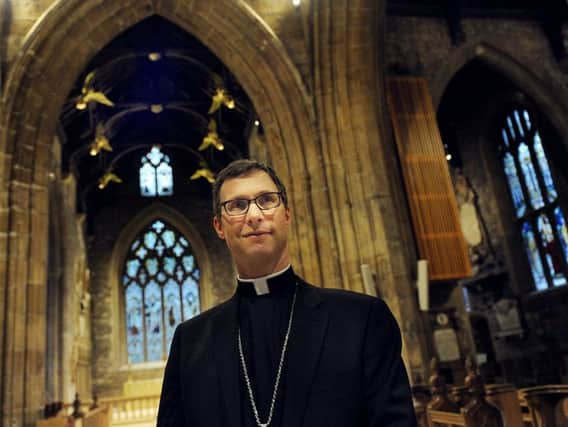Church rift deepens over female clergy after new Bishop of Sheffield's resignation


Traditionalists headed by the Right Reverend Tony Robinson, Bishop of Wakefield, vowed to continue championing senior clergy, like Bishop North, who oppose the consecration of their female counterparts on theological grounds.
Meanwhile the campaign group Women and the Church (WATCH), which had been among those to oppose the nomination of Sheffield’s new bishop, said that “the church needs to be part of the good news for women”.
Advertisement
Hide AdAdvertisement
Hide AdThe split appears to have deepened after Bishop North, 50, said that “the highly individualised nature of the attacks” were “too much to bear” and that this issue should not be “hung upon the shoulders of one individual”.
However Bishop Robinson, chairman of the traditionalist Forward in Faith network, suggested the opposition contravened the spirit of the historic General Synod vote in 2014 which endorsed female bishops while making provision for those who opposed their ordination.
Since the settlement, 10 women have been consecrated as women – the first was Libby Lane in a historic service at York Minster in January 2015 – while Bishop North, the current Bishop of Burnley, is the first to hold traditional views on the issue.
In a statement to The Yorkshire Post, Wakefield’s bishop praised the female clergy who had expressed their support for Bishop North. “As they have emphasised, the continued possibility of traditional catholics being chosen as diocesan bishops was an integral part of that settlement: the House of Bishops Declaration imposes no stained-glass ceiling on mutual flourishing,” he said.
Advertisement
Hide AdAdvertisement
Hide Ad“In the coming weeks, we shall be considering what action now needs to be taken – and by whom – to restore confidence in the House of Bishops’ Declaration, and to correct definitively the false statements that have been made about the Declaration, the Five Guiding Principles, and the beliefs of traditional catholics.
“We hope that this can be done in partnership with those who bear responsibility for the Church of England at national level. We envisage making a further statement in due course.”
Meanwhile a statement issued by WATCH distanced itself from the criticism lodged against Bishop North. It said: “We have always been clear that this is a theological debate and not personal, yet we know that this is not always how comments are heard. It is our role to ask the question ‘how do women flourish in the church?’ and we have done so mindful of the mission of the church and its witness to the wider community.”
The organisation had earlier said that the 2014 declaration did “not address the question of how women clergy flourish in a diocese where the bishop cannot fully accept their orders and their sacraments”.
Advertisement
Hide AdAdvertisement
Hide AdIt regretted that the views of church-goers were not properly considered at the outset. “As women have found, time and again, it can be hard to be the subject of a debate in which you are seen as the problem,” added the statement. “We do not think he (Bishop Philip) should have been put into a situation where the ramifications of his appointment do not seem to be thought through or talked through with those it impacts on.”